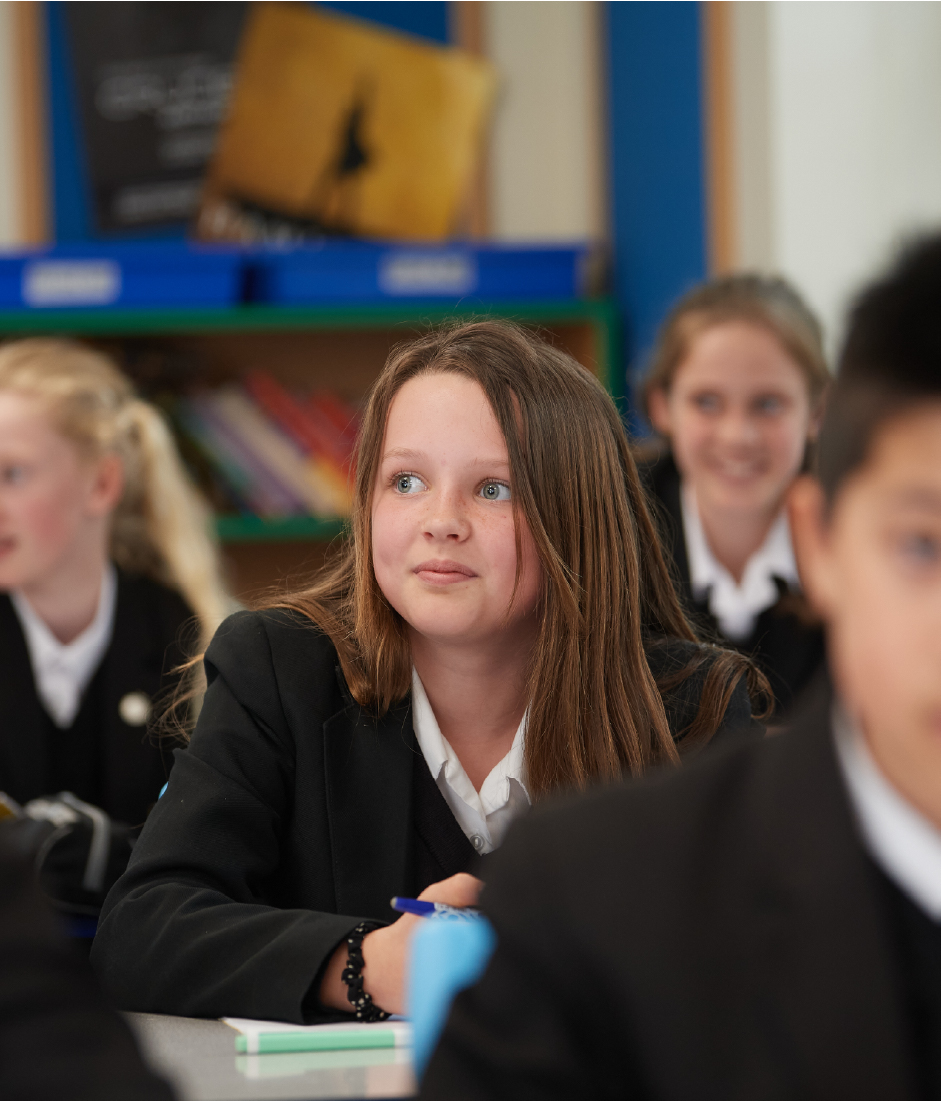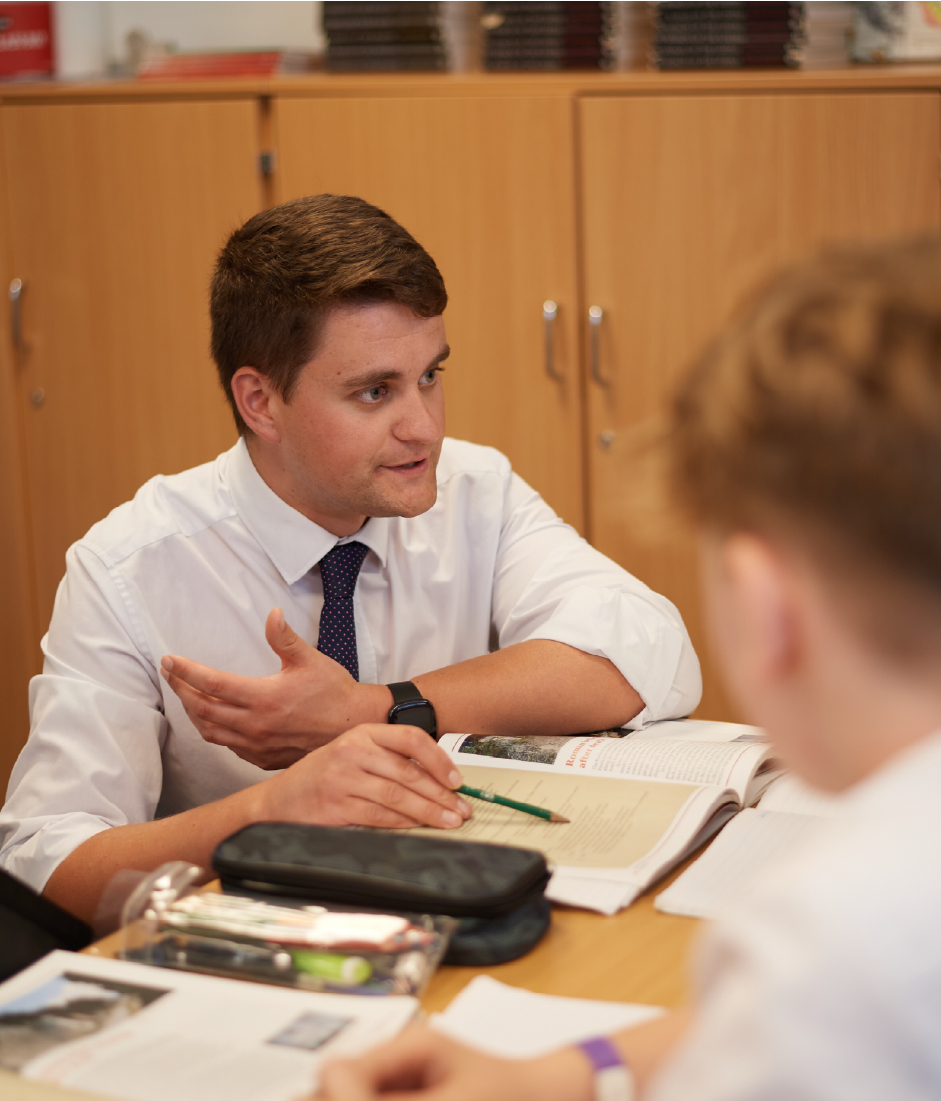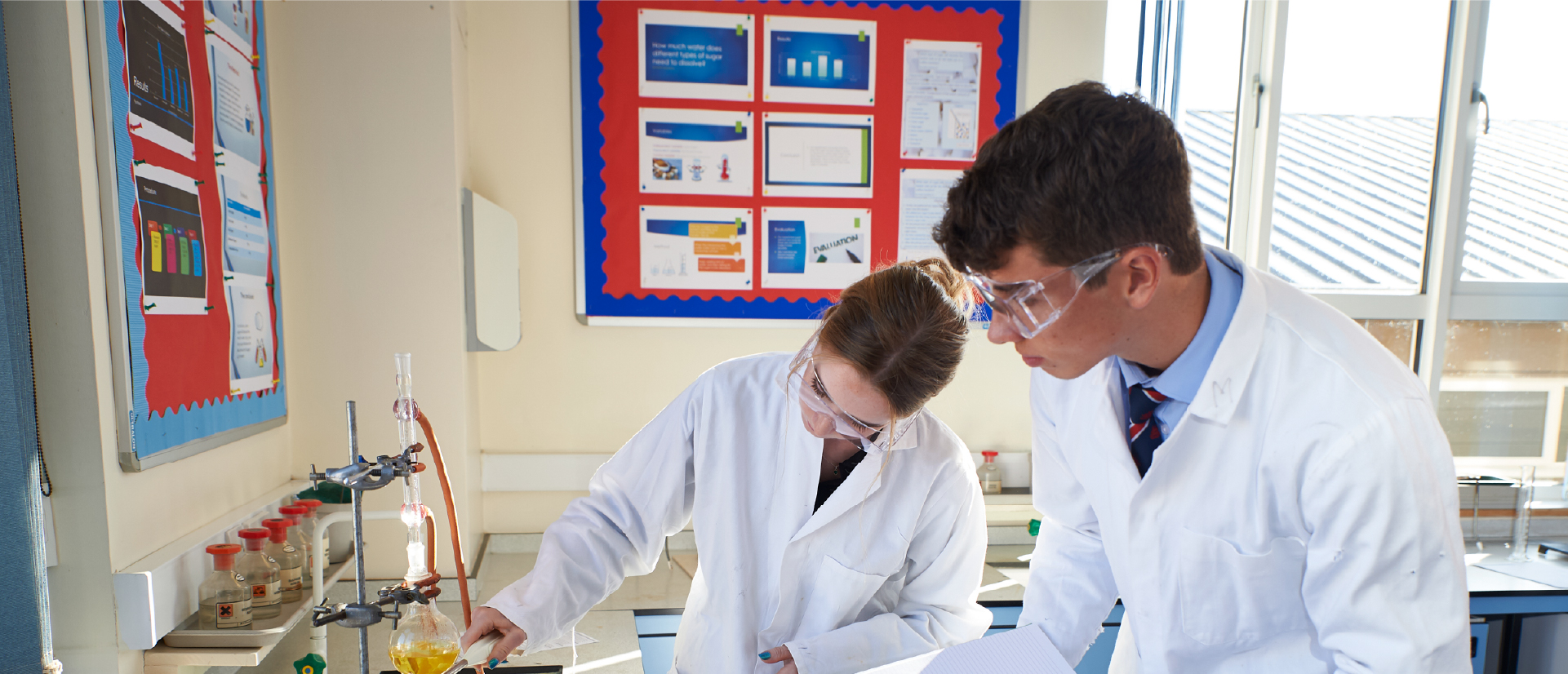Academic Excellence
We have a long history of examination and university success, and pupils are taught in an environment which is stimulating, challenging and engaging.
The College strives for academic excellence and provides pupils with the skills they need to successfully question, debate and discover both in the classroom and during independent learning. We are keen to develop thinkers who can tackle life’s challenges and solve them.

Value-Added
Independent analysis from Cambridge University shows that Churcher's College adds considerable value, well above the national average, to the student's academic outcome when compared with similar independent schools nationwide. The results of this research are published annually and Churcher’s College has consistently performed at an exceptional level since 2010.
Percentage of results awarded grade A and above in all subjects combined by centre type between 2018 & 2024.
(Data from Gov.uk - Guide to AS and A Level Results England, Summer 2024)
ALIS - A Level Value-Added
Comparison of Churcher’s College overall A Level value-added with schools/colleges nationally.
The background area is a normal distribution graph representing the distribution of the average value-added (standardised residual) scores for all schools/college in ALIS. The solid blue line is the value-added score for Churcher’s College.


Secondary: School Value-Added
Exam Year: 2025 | Show: National Standardisation | Year of Assessment: 2023 - 2024: Year 10 | Qualification: GCSE (9-1) | Subject(s): (multiple values) | Gender(s): All
Learning Support
In addition to more formal channels of academic support, most departments offer pupils drop-in support sessions with specific focus on understanding specification content and exam technique. These sessions provide pupils with the opportunity to receive individual attention to address any issues or problem areas that they may have encountered during lessons and to receive further support and guidance. As the pupils progress through the school we aim to gradually give them more responsibility for their learning so they leave us with the necessary skills for success at university and beyond.


Special Educational Needs
Churcher’s is proud to provide exemplary support for SEND pupils. Our Head of Curriculum Support, Ruth Saunders, leads a team of four who specialise in helping pupils to maximise their potential by overcoming any educational difficulties they may encounter, whether they be in the classroom, in exams, at home, or anywhere else. Pupils can feel confident that the Churcher’s Curriculum Support Department will ensure that their abilities are developed to their full potential, allowing them to enjoy their studies fully and maximise success in examinations.

Pupils display high levels of knowledge, skills and understanding in all subjects.
ISI Inspection Report 2022

2025 A Level Results
- 62% A* - A
- 91% A* - B
- 90% Secured first choice university











